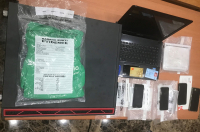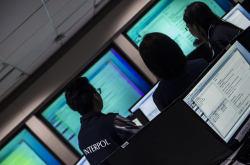SINGAPORE – An INTERPOL-coordinated cyber operation against a strain of malware targeting e-commerce websites has identified hundreds of compromised websites and led to the arrest of three individuals running the malicious campaign in Indonesia.
The malware, known as a JavaScript-sniffer, targets online shopping websites. When a website is infected, the malware steals the customers’ payment card details and personal data such as names, addresses and phone numbers, sending the information to Command and Control (C2) servers controlled by the cybercriminals.
Data provided to INTERPOL through a partnership with cybersecurity firm Group-IB on the scope and range of this malware helped identify hundreds of infected e-commerce websites worldwide. Group-IB also supported the investigation with digital forensics expertise helping to identify the suspects.

Under Operation Night Fury, INTERPOL’s ASEAN Cyber Capability Desk disseminated Cyber Activity Reports to the affected countries, highlighting the threat to support their national investigations. In particular, the intelligence detected C2 servers and infected websites located in six countries in the Association of Southeast Asian Nations (ASEAN) region.
At the request of the Indonesian National Police, the ASEAN Desk provided technical and operational support that resulted in the arrest of three individuals suspected of commanding the C2 servers in the country.
The investigation revealed the suspects were using the stolen payment card details to purchase electronic good and other luxury items, then reselling them for a profit.
“Strong and effective partnerships between police and the cybersecurity industry are essential to ensure law enforcement worldwide has access to the information they need to address the scale and complexity of today’s cyber threat landscape,” said Craig Jones, INTERPOL’s Director of Cybercrime.
“This successful operation is just one example of how law enforcement is working with industry partners, adapting and applying new technologies to aid investigations, and ultimately reduce the global impact of cybercrime,” concluded Mr Jones.
In Singapore, authorities identified and took down two of the C2 servers. Investigations in other ASEAN countries are ongoing, with INTERPOL continuing to support police in locating C2 servers and infected websites and identifying the cybercriminals involved.
See also
Related news

260 suspected scammers arrested in pan-African cybercrime operation
26 September 2025
Disrupting a Grandoreiro malware operation
18 March 2024






